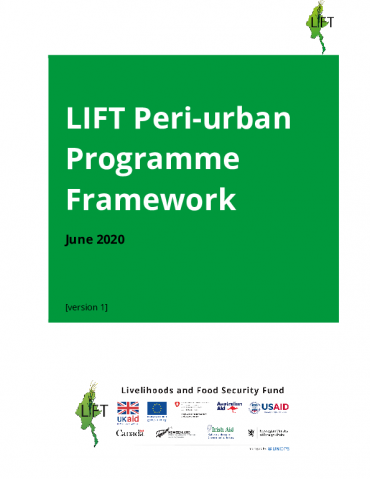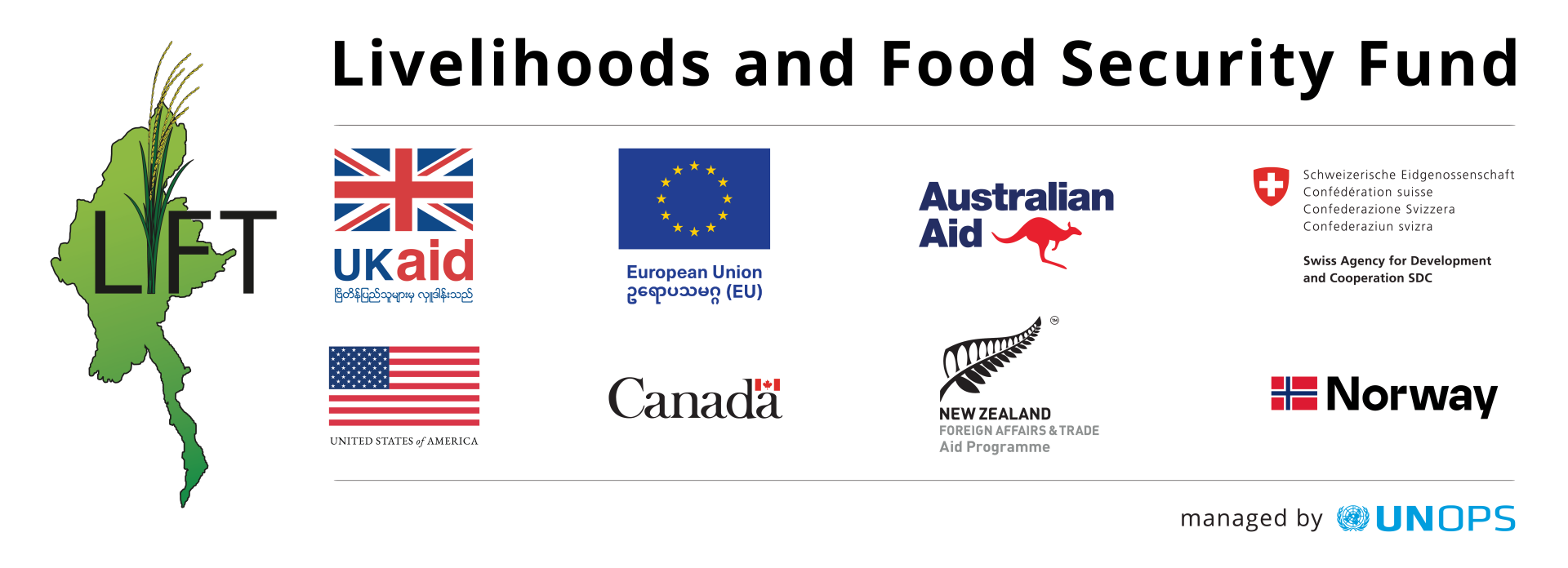
Rural to urban migration is rapidly increasing in Myanmar, with many unemployed and under-employed people moving to seek new jobs in cities. These internal migration flows have resulted in a dramatic increase in the population of Yangon’s peri-urban industrial zones and have had a particular impact on the livelihoods of women due to the highly feminised nature of employment in garment factories. However, poor wages and working conditions, combined with barriers to accessing nutritious food, safe and affordable housing and adequate water, sanitation and hygiene facilities, frequently result in negative outcomes for migrant workers.
The LIFT Peri-Urban Programme has been developed as a three-year multi-disciplinary intervention to respond to these intersecting and intractable development challenges, with a view to supporting internal migrants who are “stepping out” of the agricultural sector to seek improved livelihoods in urban areas. By ameliorating the underlying conditions that lead to poor health and nutritional outcomes and labour exploitation, the programme will address the key barriers preventing migrant households from climbing out of poverty and reaching their full potential.
The overall goal of the programme is improved nutritional status, increased household income and assets and reduced vulnerability for women and men internal migrants in the peri-urban areas of Yangon. The programme will achieve this goal through three component outcomes:
1. Expanding access to information, services and peer support for women and men migrants;
2. Increasing opportunities for decent work for women and men migrants; and
3. Improving nutrition and water, sanitation and hygiene conditions, particularly for mothers and children.
The LIFT Peri-Urban Programme includes six projects focused on Hlaing Thar Yar, Shwe Pyi Thar, South Dagon and Dagon Seikkan Townships of Yangon – where the largest share of internal migrants are concentrated. These interventions will achieve scale, benefitting nearly 350,000 direct beneficiaries (of whom 71 per cent will be women) during the implementation period.


